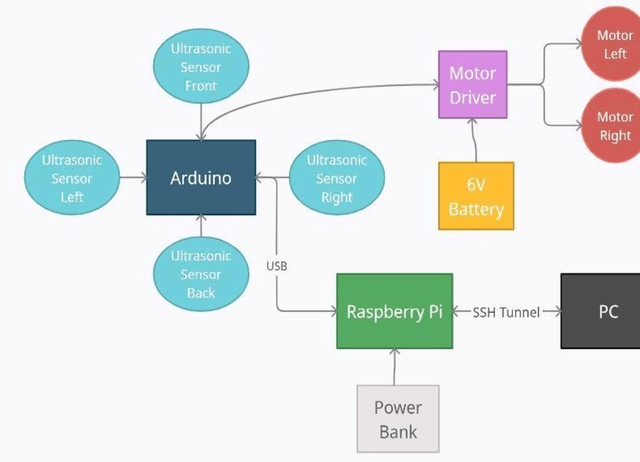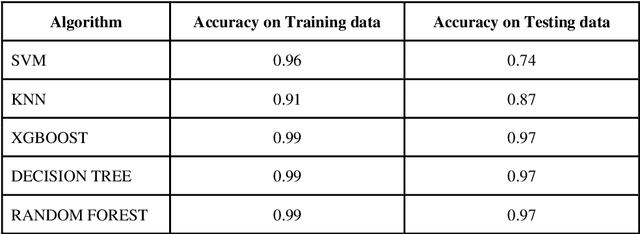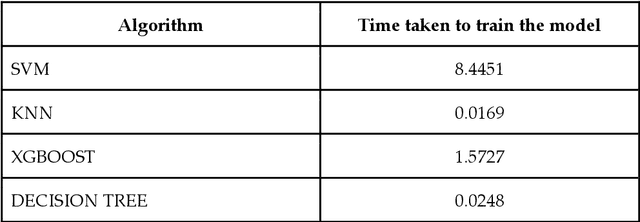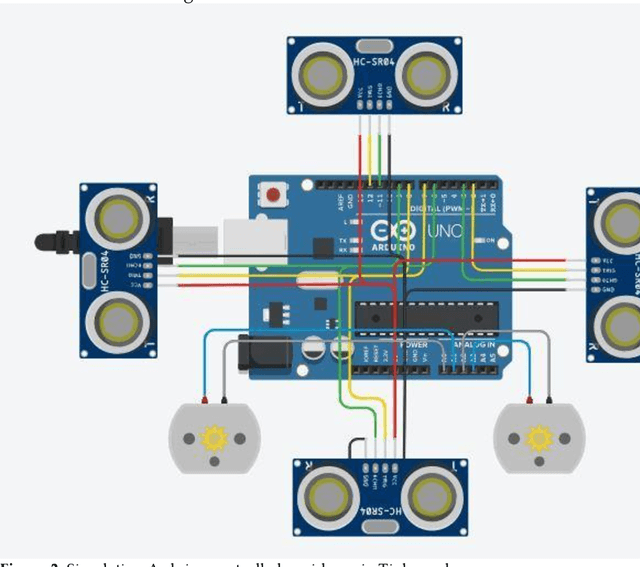S. P. Syed Ibrahim
Autonomous bot with ML-based reactive navigation for indoor environment
Nov 24, 2021



Abstract:Local or reactive navigation is essential for autonomous mobile robots which operate in an indoor environment. Techniques such as SLAM, computer vision require significant computational power which increases cost. Similarly, using rudimentary methods makes the robot susceptible to inconsistent behavior. This paper aims to develop a robot that balances cost and accuracy by using machine learning to predict the best obstacle avoidance move based on distance inputs from four ultrasonic sensors that are strategically mounted on the front, front-left, front-right, and back of the robot. The underlying hardware consists of an Arduino Uno and a Raspberry Pi 3B. The machine learning model is first trained on the data collected by the robot. Then the Arduino continuously polls the sensors and calculates the distance values, and in case of critical need for avoidance, a suitable maneuver is made by the Arduino. In other scenarios, sensor data is sent to the Raspberry Pi using a USB connection and the machine learning model generates the best move for navigation, which is sent to the Arduino for driving motors accordingly. The system is mounted on a 2-WD robot chassis and tested in a cluttered indoor setting with most impressive results.
 Add to Chrome
Add to Chrome Add to Firefox
Add to Firefox Add to Edge
Add to Edge